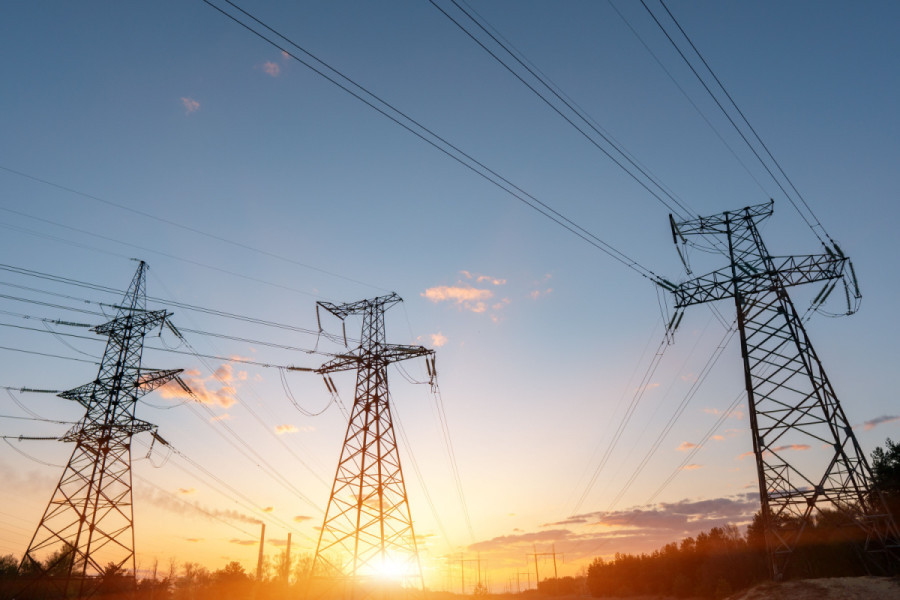National
Task force for relaxing provisions on optimisation of hydro generation capacity
Private sector says it would be a right step amid growing market for Nepal’s clean energy in India and Bangladesh.
Post Report
As the prospect of exporting power to India and other markets has been growing, the question of how to maximise the benefit of export has also arisen.
Against this background, a task force formed by the Nepal Electricity Authority (NEA) has suggested that the hydropower projects should be allowed to optimise their generation capacity by guaranteeing that all the power produced by them would be purchased by the NEA.
The task force headed by Sandeep Kumar Deo, joint-secretary at the Ministry of Energy, Water Resources and Irrigation, stressed that the optimum generation capacity of hydropower should be utilised amid the opportunity to sell power in the neighbourhood market.
For this, it has suggested the NEA to buy increased power output following the optimisation of generation capacity.
The NEA board on February 9 had formed the task force to recommend ways to sign power purchase agreement (PPA) with developers of projects having optimised generation capacity.
A report recently prepared by the task force states that the door should be opened for operating power plants in their optimum capacity. “For this, the current provision of Q40 criteria of Probability of Exceedance (PoE) needs to be revised,” it says.
While designing projects in Q40, projects should be able to supply power in full capacity for at least 4.8 months. However, as they have to operate the plants for a longer period, the capacity of projects would need to be lowered, eyeing the hydrological capacity of such projects during the dry season when water level in the river remains low.
When the percentage of PoE is reduced, the project's capacity can be optimised, according to the report. For example, a 100MW project with Q40 criteria can be optimised to 185MW by adopting Q25 criteria, the report said.
The report has called for revising the PPA signed with promoters of run-of-the-river (RoR) and peaking run-of-the-river (PRoR) projects even if the generation capacity is optimised by 25 percent. Such optimisation will enable the projects to generate more power, particularly in the rainy season.
“These are the welcome recommendations of the task force,” said Ganesh Karki, president of the Independent Power Producers Association of Nepal (IPPAN), a grouping of private sector developers. “It is wiser to optimise the generation capacity and earn more by exporting more power. It is a win-win for the nation as well as the power developers.”
India, which currently allows Nepal to sell up to 452.6 megawatts in its power exchange market, has promised to buy 10,000MW electricity over the next 10 years. The southern neighbour has also expressed its readiness to facilitate the export of 40MW power from Nepal to Bangladesh via India.
Indian Prime Minister Narendra Modi made the pledge when Prime Minister Pushpa Kamal Dahal visited New Delhi in May-June.
In order to enable cross-border trading of power, four high-capacity cross-border transmission lines are in the pipeline with the Dhalkebar-Muzaffarpur Cross Border Transmission channel already operating.
Prime Minister Dahal said in Chitwan on Saturday that there is a plan to sign a power trade deal with China too when he visits the northern neighbour possibly next month. Currently, there is no transmission connection with the northern neighbour but one has been planned.
India opened the door for Nepal to sell its power in India’s power exchange market in November 2021. The situation has changed with the country possibly able to sell all its surplus energy in India and other markets such as Bangladesh.
Nepal earned over Rs11 billion by selling power in 2022 and the government expects to earn as much as Rs70 billion through electricity exports over the next five years.
There are also recommendations in the report that the generation licence for the storage and pump storage should be 45 years from the 35 at present with the option of a five-year extension in the case of force majeure. The recommendation is aimed at encouraging investors to pour money into such projects. IPPAN president Karki said such treatment should also be accorded to run-of-the-river type projects.
Private sector power developers, however, are not happy with the recommended deadline for financial closure of any project. Financial closure denotes the generating resources for constructing the project.
As per the task force's recommendations, the deadline for financial closure of the projects with capacity up to 100MW should be two years and that for other projects with capacity above 100MW should be three years.
If the financial closure or the task for generating resources is not completed within this period, the generation licence and the PPA should be scrapped.
IPPAN calls this recommendation harsh considering that many projects suffered due to Covid-19 and the recent liquidity crunch in the banking system that led to a surge in interest rates.
“Instead, IPPAN has called for allowing three years for the financial closure of projects up to 100MW, four years for projects with the capacity range of 100MW–500MW and five years for projects above 500MW capacity,” IPPAN said.




 22.12°C Kathmandu
22.12°C Kathmandu













